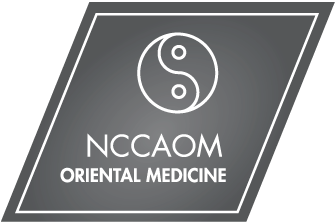Your Treatment
What is TCM?

Traditional Chinese Medicine (TCM) also known as Traditional East Asian Medicine or Oriental Medicine, is holistic system of healthcare rooted in eastern philosophy. Its origins developed over 5,000 years ago and is heavily influenced by Taoism. Acupuncture specifically is an ancient form of TCM, and can treat disease and injury within the body safely. The effect of this medicine is cumulative, and can help to rebalance your entire physical and energetic body. Acupuncture, which is needle therapy, is only one aspect of TCM. Your treatments may also include Chinese herbal medicine, moxibustion (heat therapy), cupping or gua sha (fascia therapy), tui na (bodywork therapy), and qi gong (movement therapy).
Conditions Treated

I am trained to treat multiple health conditions and disharmonies, and my interests lie in addressing chronic health conditions. Some of what I treat includes chronic fatigue, chronic pain, digestive issues, all women’s health concerns from menarche to fertility to menopause, sexual health, headaches and migraines, insomnia and sleep disorders, arthritis, autoimmune disorders, anxiety, and depression. I integrate my background of adjunctive therapies, herbal medicine, and energy work into acupuncture treatments and uniquely approach each individual’s needs and wellness goals. My intention is always to treat the root cause of illness by thoroughly analyzing both your constitution and history. I deeply understand the burden of chasing symptoms without resolution and seek to guide you back to your balanced state of being.
Your First Treatment

Most patients describe acupuncture treatments as relaxing and stress relieving. Some people feel totally rejuvenated afterwards, and some continue to feel that relaxation the rest of the day. The needles themselves are almost as thin as a strand of hair. While some areas of the body are more sensitive than others, your treatments should not be painful. Everyone responds differently to acupuncture and TCM. Some people feel better immediately after their first session, while others may find relief a day or two later, or 2-3 treatments later. With any condition, time and consistency are the keys to improvement, so it is often recommended to have sessions weekly during the first phase of your treatment plan.
Diplomate of Oriental Medicine

A Diplomate of Oriental Medicine is a practitioner who is certified by the National Certification Commission for Acupuncture and Oriental Medicine (NCCAOM®) and has met the certification requirements for both acupuncture and Chinese herbology. It is a considerable professional achievement to earn the designation Diplomate of Oriental Medicine (NCCAOM). NCCAOM certification indicates to employers, patients, and peers that one has met national standards for the safe and competent practice of acupuncture and Chinese herbology as defined by the acupuncture and Oriental medicine (AOM) profession. For additional information, about the Diplomate of Oriental Medicine, please visit the NCCAOM Website.